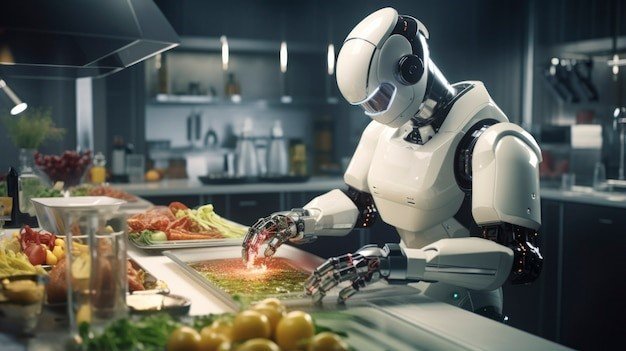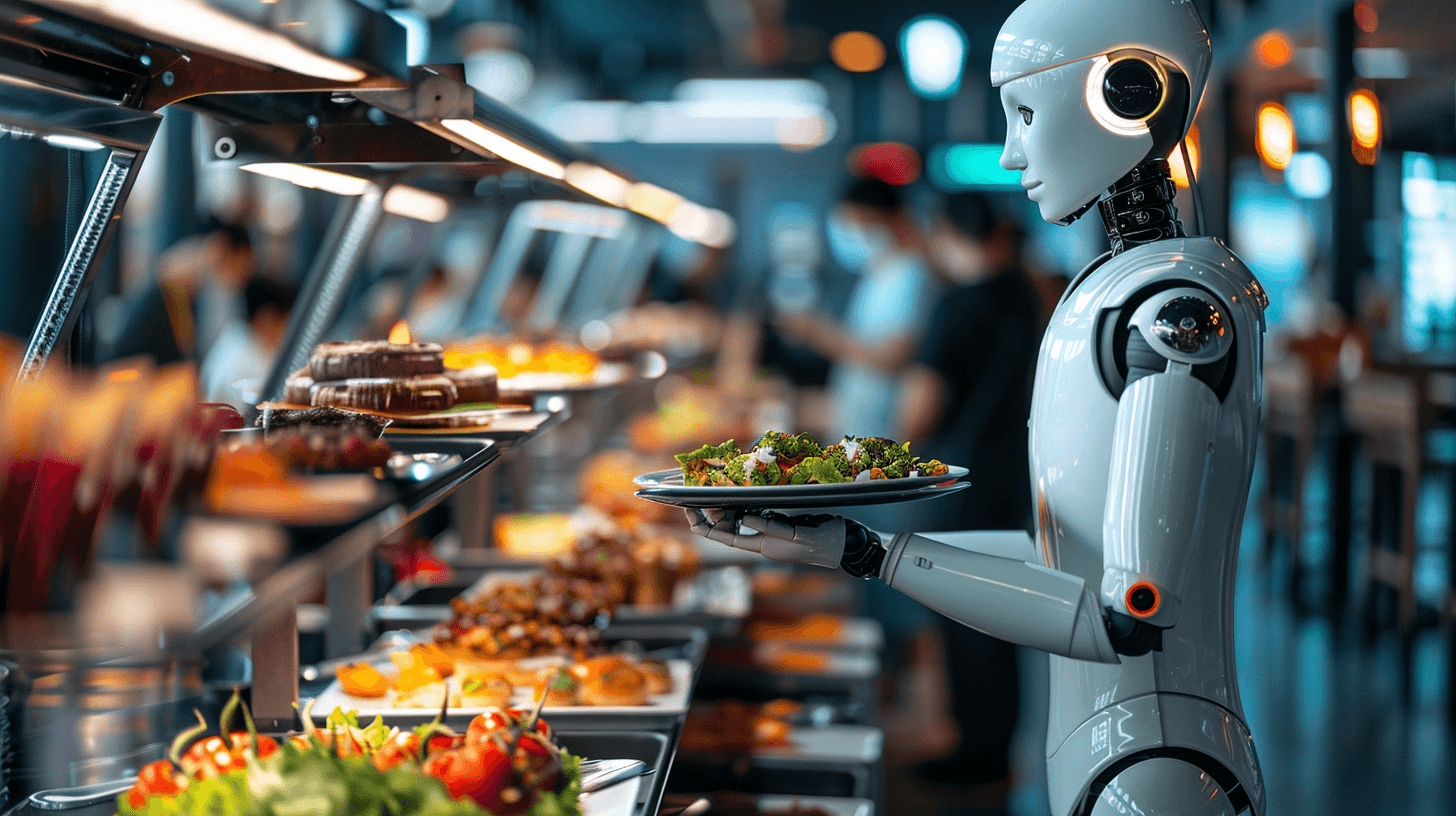Food waste is a massive global issue, and restaurants contribute significantly to the problem. AI in restaurants ranges from over-ordering ingredients to inefficient inventory management, and a lot of food is in the trash. However, artificial intelligence (AI) is revolutionizing how restaurants handle food, making operations more innovative and sustainable. Let’s dive into how AI transforms the restaurant industry by minimizing food waste.
1. Understanding the Food Waste Problem in Restaurants
Food waste isn't just about throwing away leftovers—it’s a financial and environmental burden. According to studies, millions of tons of food are wasted globally every year, with restaurants being one of the main culprits. Wasted food means wasted money, increased carbon footprint, and unnecessary strain on natural resources. The good news? AI-driven solutions are here to change that.
2. AI-Powered Inventory Management
Poor inventory management is one of the biggest reasons for food waste in restaurants. AI can track stock levels, predict demand, and provide real-time insights on ingredient usage. By analyzing historical data, AI can suggest precise ordering quantities, ensuring restaurants don’t over-purchase or underutilize ingredients.
3. Smart Forecasting to Reduce Overproduction
AI-based forecasting tools help restaurants anticipate customer demand with incredible accuracy. AI can predict how much food a restaurant will need each day by analyzing past sales, seasonal trends, and even external factors like weather. This reduces the chances of over-prepping food, preventing unnecessary waste.
4. AI-Driven Menu Optimization
Restaurants can use AI to analyze which dishes are most popular and which ones lead to the most waste. AI can suggest tweaks to the menu, recommending ingredient substitutions or portion adjustments to reduce food waste while maintaining profitability and customer satisfaction.
5. Real-Time Food Monitoring Systems
AI-powered cameras and sensors can track food movement in kitchens and storage areas. These systems can detect when ingredients are nearing expiration and notify chefs or managers to use them before they go bad. Some AI tools even integrate with smart fridges, automatically adjusting storage conditions to extend the shelf life of perishable items.
6. Automated Portion Control
Over-serving is a common issue in restaurants, leading to unnecessary waste. AI-powered kitchen scales and portion control tools ensure that each dish is prepared with precise measurements. This reduces waste and maintains consistency in food quality and taste.
7. Food Donation and Redistribution
Instead of tossing surplus food, restaurants can use AI to identify excess inventory and connect with food banks or donation centers. AI-powered apps and platforms match restaurants with organizations that can redistribute surplus food, ensuring it goes to people in need rather than landfills.

8. Smart Pricing Strategies to Reduce Waste
Dynamic pricing powered by AI can help sell surplus food at discounted rates. Restaurants can offer deals on dishes that use ingredients approaching expiration. Platforms like Too Good To Go and Karma already use AI to help eateries sell excess food at lower prices, reducing waste while attracting budget-conscious customers.
9. AI-Enabled Waste Tracking and Analytics
AI-driven waste tracking systems help restaurants monitor exactly what’s being thrown away. By understanding patterns in food waste, restaurant owners can make informed decisions to adjust purchasing, portion sizes, and menu offerings, effectively reducing overall waste.
10. Sustainable Packaging and Storage Solutions
AI isn’t just optimizing food management—it’s also helping with packaging. Intelligent AI algorithms recommend eco-friendly packaging solutions and suggest improved storage techniques that keep food fresher for longer, ultimately cutting down on waste.
Read More: ICAI CA Foundation and Inter Results 2025: Everything You Need to Know
Conclusion
AI in restaurants: AI is revolutionizing the restaurant industry, turning food waste into an avoidable problem. From innovative inventory management to AI-powered forecasting and waste tracking, technology is helping restaurants operate more efficiently while promoting sustainability. As AI continues to evolve, its impact on reducing food waste will only grow, creating a win-win for businesses, consumers, and the planet.
Explore other popular Posts:
Blog | News | Entertainment | Education | Sports |
Technology | Cryptocurrency | Stock | Home | Sitemap





